vpn
Latest

Google also has a data-vacuuming iOS app that bypasses the App Store (Update)
Facebook isn't the only tech giant to offer a data-vacuuming app that sidesteps Apple's App Store. Since 2012, Google has allowed people to earn gift cards by offering up their data through its Screenwise project. On iOS and Android, the company gains access to participants' data through a VPN app called Screenwise Meter. But if Facebook's latest turmoils are anything to go by, Google could suffer Apple's ire over it.

Firefox update adds improved tracking protection
Mozilla is trying to do something about that eerie feeling you get when you think of cat food and all of a sudden start seeing targeted ads about cat food -- with the new Firefox update, anti-tracking measures are being implemented that will prevent websites from following you as you jump from site to site. This comes a year after Firefox's last major update, Quantum , which brought with it increased speed, as well as an earlier version of tracking protection.

Mozilla test will offer Firefox users ProtonVPN subscriptions
Mozilla is rolling out an experimental feature for Firefox that's not quite like its other ones -- you'll have to pay to be able to use. The organization has teamed up with ProtonVPN to test a subscription-based virtual private network for $10 a month. Starting on October 24th, a small number of people in the US using the latest version of Firefox will see the offer pop up. It'll ask if you're interested in hearing more before it takes you to the page where you can sign up for the service, which is compatible with iOS, Android, Mac, Linux and Windows.
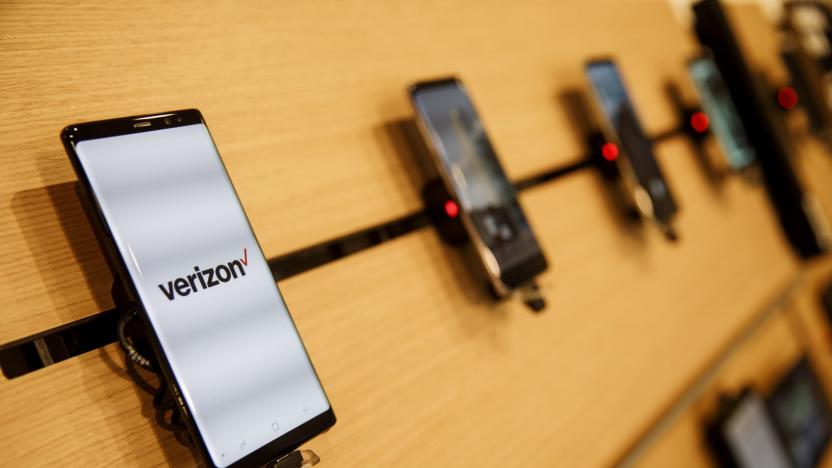
Verizon VPN app protects against shady public WiFi
Add Verizon to the list of tech giants that can't resist the temptation to offer their own virtual private network services. The carrier (and Engadget's parent company) has released a Safe Wi-Fi app for Android that uses the encryption of a VPN to protect you against dodgy WiFi hotspots. Ideally, you won't have to worry about a fake access point intercepting your data traffic at the airport or coffee shop. The app even blocks ad trackers that can lead to targeted marketing -- yes, the telecom that got in trouble for aggressive ad tracking is now helping you avoid it.

The best VPN service
By Mark Smirniotis This post was done in partnership with Wirecutter. When readers choose to buy Wirecutter's independently chosen editorial picks, Wirecutter and Engadget may earn affiliate commission. Read the full VPN guide here. We spent more than 130 hours over four months researching 32 VPN services, testing 12, interviewing the leadership of five, and consulting information security and legal experts about our results. We found that most people should prioritize other security tools and privacy practices first, but in the cases where a VPN makes sense—such as when you're connecting to public Wi-Fi—IVPN is the most trustworthy provider that offers fast, secure connections with an easy setup process on both computers and mobile devices.

Data-stealing router malware bypasses web encryption
A recently discovered strain of router malware appears to be much worse than thought. Cisco Talos has learned that VPNFilter can not only render devices unusable, but can bypass the SSL encryption you often see on the web. A module in the malware intercepts outgoing web requests to turn them into non-secure (that is, basic HTTP) requests, helping it steal sign-ins and other sensitive data when possible. It can also use man-in-the-middle attacks to insert hostile JavaScript into outside websites, and target devices beyond the router itself, such as PCs on the local network.

Pornhub made a VPN
Arguably the biggest adult video website on the planet, Pornhub is responsible for plenty of folks getting their rocks off each day. But, as regulations on the internet trend rightward, access to adult content is becoming a problem. That's why the site is launching VPNhub, a Pornhub owned-and-operated VPN that will theoretically keep your browsing activity free from the prying eyes of snoopers and censors.

New Mexico asks BitTorrent what it does to stop child exploitation
New Mexico Attorney General Hector Balderas is worried that technology is enabling child exploitation, and he's putting pressure on the companies creating that technology. His office has sent a letter to BitTorrent asking it to cooperate with an investigation into tech aiding child exploitation. The official wanted to know what BitTorrent is doing to block, monitor and report illegal material in its uTorrent client, and was concerned that the company's Cyber Ghost VPN was helping criminals hide their tracks by securing traffic. He also asked for subscriber counts in the state and the number of people removed so far.

Opera discontinues its mobile VPN app (updated)
Opera's free mobile VPN app wasn't long for this world, unfortunately. The browser maker has discontinued both its Android and iOS VPN clients after SurfEasy, the developer Opera had acquired in 2015, parted ways with the company. We've asked about the fate of desktop support, but it's safe to say this reduces your choices when you're accessing content from other countries or adding a degree of secrecy to your surfing. You're not out of luck if you want to use Opera VPN's underlying technology, though.

Mt. Gox chief returns as an exec at a VPN giant
Former Mt. Gox CEO Mark Karpeles may still be on trial for embezzlement in Japan, but that isn't stopping him from playing an influential role in the cryptocurrency world. As part of an interview with Fortune, the one-time bitcoin exchange leader has confirmed that he's now the CTO for London Trust Media, a company best known for its popular VPN service Private Internet Access. It's also an investor in cryptocurrency services like BlockExplorer, Purse.io and Zcash, but Karpeles insists he's not involved in that side of the business. London Trust Media co-founder Andrew Lee said he was happy to "give a second chance" to Karpeles in his "critical hour."
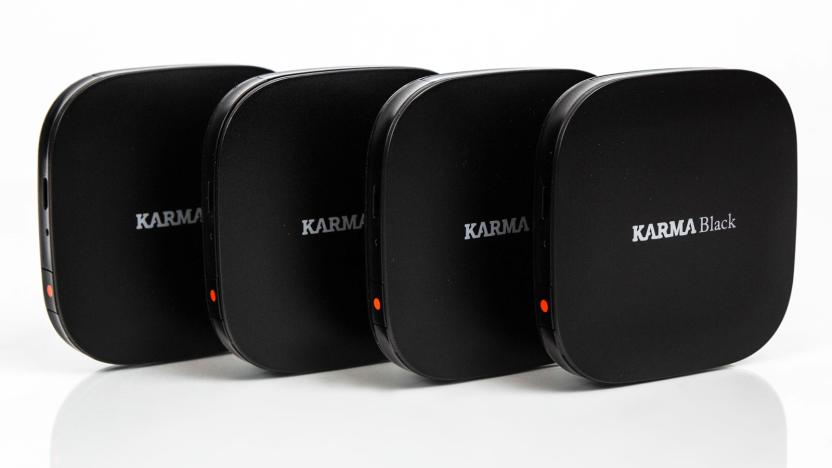
Karma's anonymizing LTE hotspot arrives January 15th
Want to keep your internet activity under wraps regardless of what device you're using or where you are? You won't have too much longer to wait. Karma has revealed that its anonymizing Karma Black LTE hotspot will ship on January 15th, with pre-orders open now. Spend $149 ($249 after January 15th), plus $20 per month for security services, and you'll get a portable router that encrypts all your internet traffic while masking your location and other potentially identifying data markers. You can use it to boost the privacy of your home connection, too, and there's the promise of feature expansions that include Tor anonymity network services, antivirus safeguards, ad blocking and parental controls.
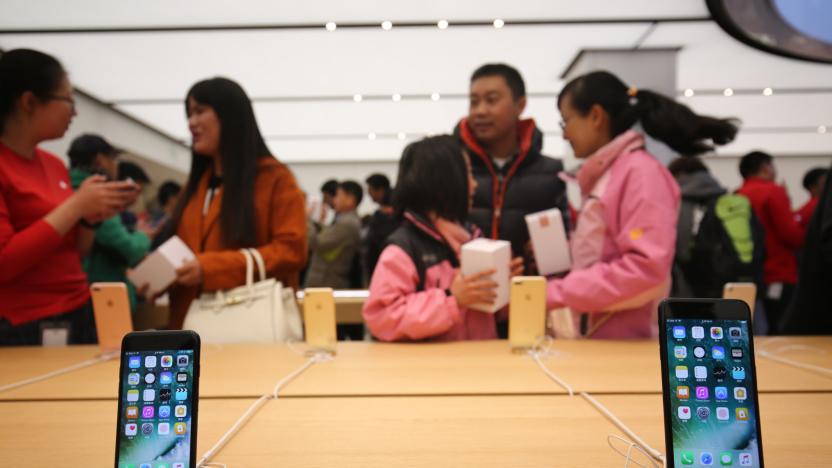
Senators want to know if Apple fought back on China's VPN ban
Apple CEO Tim Cook wasn't pleased about pulling VPN software from the company's App Store in China, but this July, it happened anyway. As a result, many users who once counted on such software to dodge the country's Great Firewall were left to their own devices (and we've explored the situation at length here). Now, senators Ted Cruz (R-TX) and Patrick Leahy (D-VT) have called on Cook in a letter to explain in detail how that process went down, out of concern that Apple is "enabling the Chinese government's censorship and surveillance of the internet."
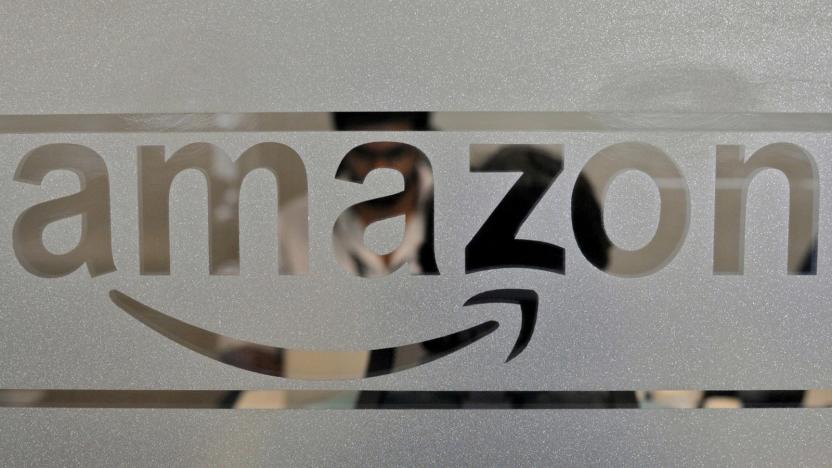
Amazon reminds cloud customers in China to avoid VPNs
Apple isn't the only company that's feeling the pressure from the Chinese government in its quest to limit internet access even further. According to The Wall Street Journal, Amazon also had to tell its cloud-computing customers in China to delete their VPNs and other tools that can be used to bypass the country's infamous firewall. Beijing Sinnet Technology, the tech giant's local partner responsible for sending out the message to customers, cited requests from China's public security ministry and the Ministry of Industry and Information Technology for the demands it made.
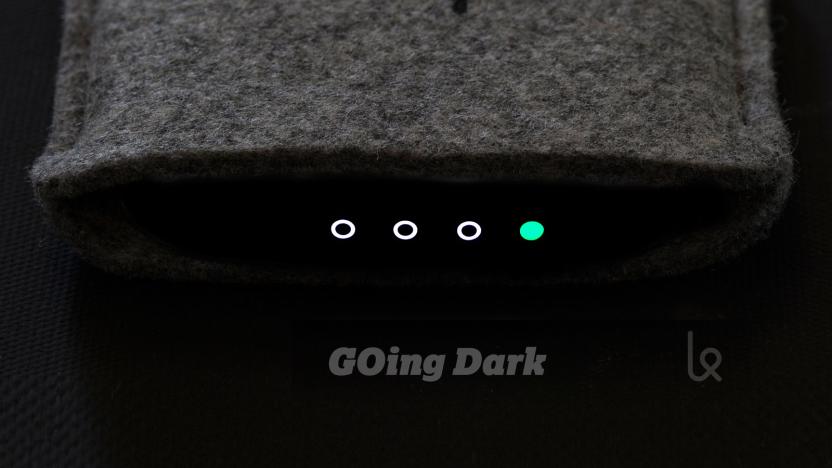
Karma's new hotspot gives users a cloak of invisibility
Personal hotspot hardware provider Karma has announced a new security-focused product, Karma Black. A specialized version of the company's KarmaGO hotspot device, Karma Black will provide anonymous browsing (Tor), an integrated Virtual Private Network (VPN), blacklisting and ad-blocking. KarmaGO allows users to establish a WiFi connection through 4G via a small portable device, either on a pay-as-you-go basis or through a monthly data plan -- it's particularly popular with business travellers. Karma Black will operate in the same way, but will act as an invisibility cloak for users, encrypting web activity and hiding physical location. It'll also provide beefier protection against intrusive advertising and viruses.
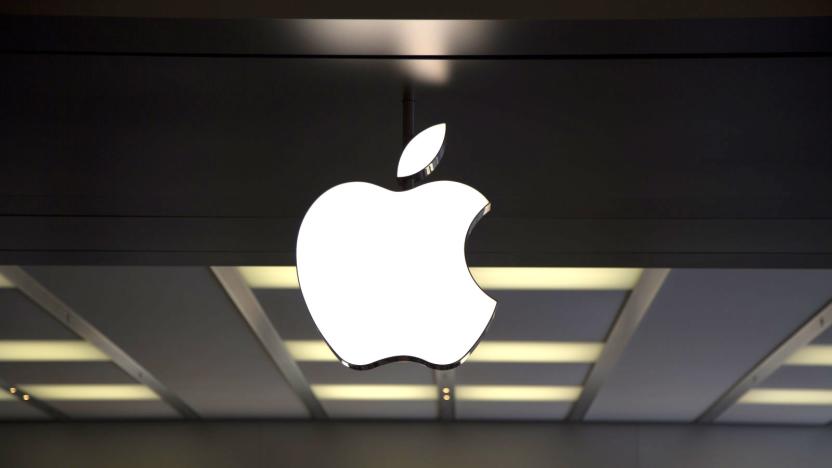
What you need to know about Apple, VPNs and China
On July 29th, Apple began notifying VPN companies that their apps would shortly be pulled from the App Store in China. In a statement, ExpressVPN said that the move was "surprising and unfortunate" and that it was "disappointed in this development." But is this a case of Apple essentially capitulating in a privacy and censorship fight with the Chinese government?

Russian censorship law bans proxies and VPNs
It's going to be much harder to view the full web in Russia before the year is out. President Putin has signed a law that, as of November 1st, bans technology which lets you access banned websites, including virtual private networks and proxies. Internet providers will have to block websites hosting these tools. The measure is ostensibly meant to curb extremist content, but that's just pretext -- this is really about preventing Russians from seeing content that might be critical of Putin, not to mention communicating in secret.
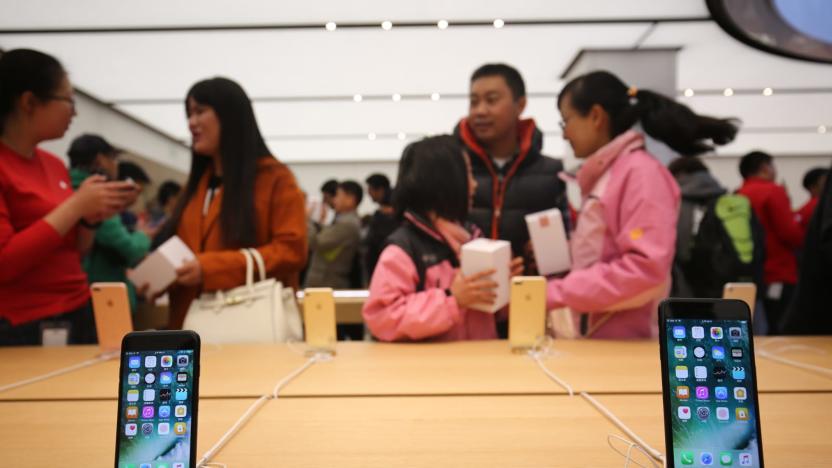
Apple pulls VPN apps following China crackdown (update: statement)
China might say it isn't cracking down on personal VPNs, but Apple would likely argue otherwise. ExpressVPN, Star VPN and other developers report that Apple has pulled their apps from the App Store in China for allegedly including "content that is illegal" in the country. Some clients are still on other platforms (including ExpressVPN, for now) while others remain, so it's not a uniform cull at this point. However, this is still a big blow to attempts to circumvent China's mounting internet censorship through encrypted communication -- not to mention companies that may have been depending on those apps for remote work connections.

Is your VPN lying to you?
It's no secret that there are oodles of shady VPN services that promise to protect your privacy as you surf the internet, but may, in fact, actually be worthless. After all, internet privacy is one part moving target and two parts shell game with your money and trust, so no one's surprised that the post-Snowden privacy panic turned into a gold rush for the unscrupulous. One method VPN providers use to bilk trusting customers is to do shady things with customer records. We've also seen them misconfigure critical security settings, de-anonymize customers and only take action when caught.

China might not block personal VPNs after all
With China making "unapproved" virtual private networks illegal at the start of the year, we previously reported that the nation planned to completely block public access to VPNs by February 1st. Now, just a few days later, China's Ministry of Industry and Information Technology has issued a statement that appears to debunk the claims. The minister states that VPNs with "permissions" such as domestic and international companies won't be affected. The Ministry then goes onto say that "the majority of users" will also be safe, stating that it will only crack down on "unapproved" VPNs. Predictably, the statement doesn't clarify exactly how users go about getting said approval.

China orders telecoms to block personal VPNs by February
China declared that virtual private networks were illegal back at the start of the year, and now it's giving telecoms no choice but to fall in line. Bloomberg sources understand that the government has told carriers to block individual access to VPNs by February 1st. Companies can still use VPNs internally, and will reportedly be allowed to use leased lines (registered with officials, of course) to access the full internet, but everyone else appears to be out of luck.







